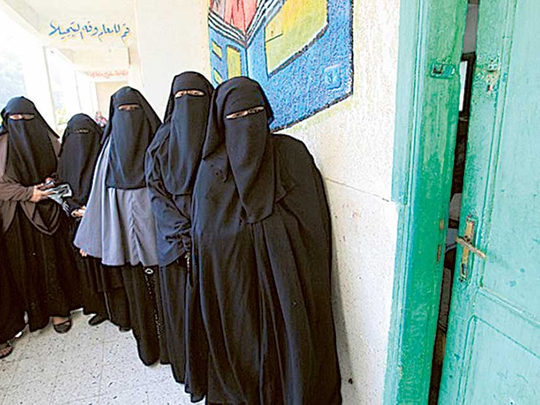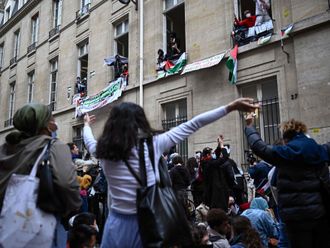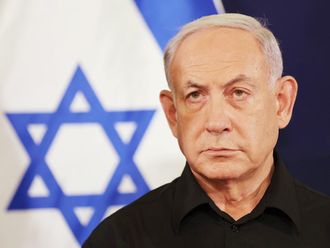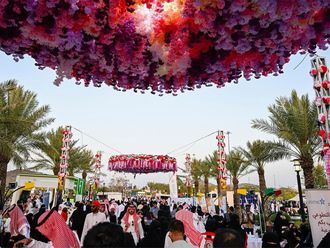
Cairo: A controversial ban ordered by Egypt’s main public university on the niqab, a face-covering veil worn by some Muslim women, has fuelled debate ahead of the country’s parliamentary elections slated for later this month.
Earlier this week, Cairo University barred its female teachers from wearing the niqab while doing their job, a move that has drawn a sharp criticism from the ultra-conservative Salafists.
“This decision violates the law and constitution. It constitutes discrimination against a certain group of people due to their religion,” said Yasser Burhami, a leading Salafist. “The niqab does not violate the Islamic Sharia. Some Islamic scholars even consider it obligatory. Therefore, the university’s ban on the niqab is an infringement of women’s right to wear it.”
Burhami urged the university to scrap the decision or face lawsuits.
The head of Cairo University Jaber Nassar has denied that the ban is politically or religiously motivated.
“The aim of the decision is purely educational. It seeks to enhance direct communication between the student and the teacher. It will not be expanded beyond the lecture halls or applied to female students.”
Burhami is a senior leader in the Salafist Dawa (Call), an umbrella group for the ultra-conservative Al Nour Party, which is the only Islamist force contesting the two-round legislative elections due to begin on October 18.
A member of Al Nour calling himself Rabae Al Salafi posted the Cairo University’s ban on his Facebook account, urging people to vote for the party in the elections. “Lest they [authorities] order the removal of the niqab in the street, you should vote in favour of Al Nour,” he said.
In recent months, secularists have stepped up criticism of Al Nour, accusing it of manipulating religion for political gains.
“Al Nour is reviving the tactics of the Muslim Brotherhood by portraying themselves as the guardians of Islam,” said Hassan Sobhy, an anti-Islamist activist.
“Egyptians are already fed up with the exploitation of religion in politics. Al Nour should learn a lesson from the black end of the Brotherhood.”
In 2013, Islamist president Mohammad Mursi of the Brotherhood was deposed following enormous street protests against his rule. Al Nour backed Mursi’s ouster. Months later, the Brotherhood was outlawed and designated a terrorist organisation.
Dozens of lawsuits have recently been filed in Egypt requesting the dissolution of Al Nour for allegedly violating a constitutional article banning the establishment of political parties on religious grounds. The party has repeatedly denied the accusation and is fielding Christian candidates in the coming elections.
Al Nour was one of several Islamist parties licenced after the 2011 uprising that forced long-time president Hosni Mubarak out of power.
The party had 25 per cent of seats in the 2012 Islamist-led parliament. The legislature was dissolved in June that year by the country’s top court.
Egypt has since been without a parliament.












